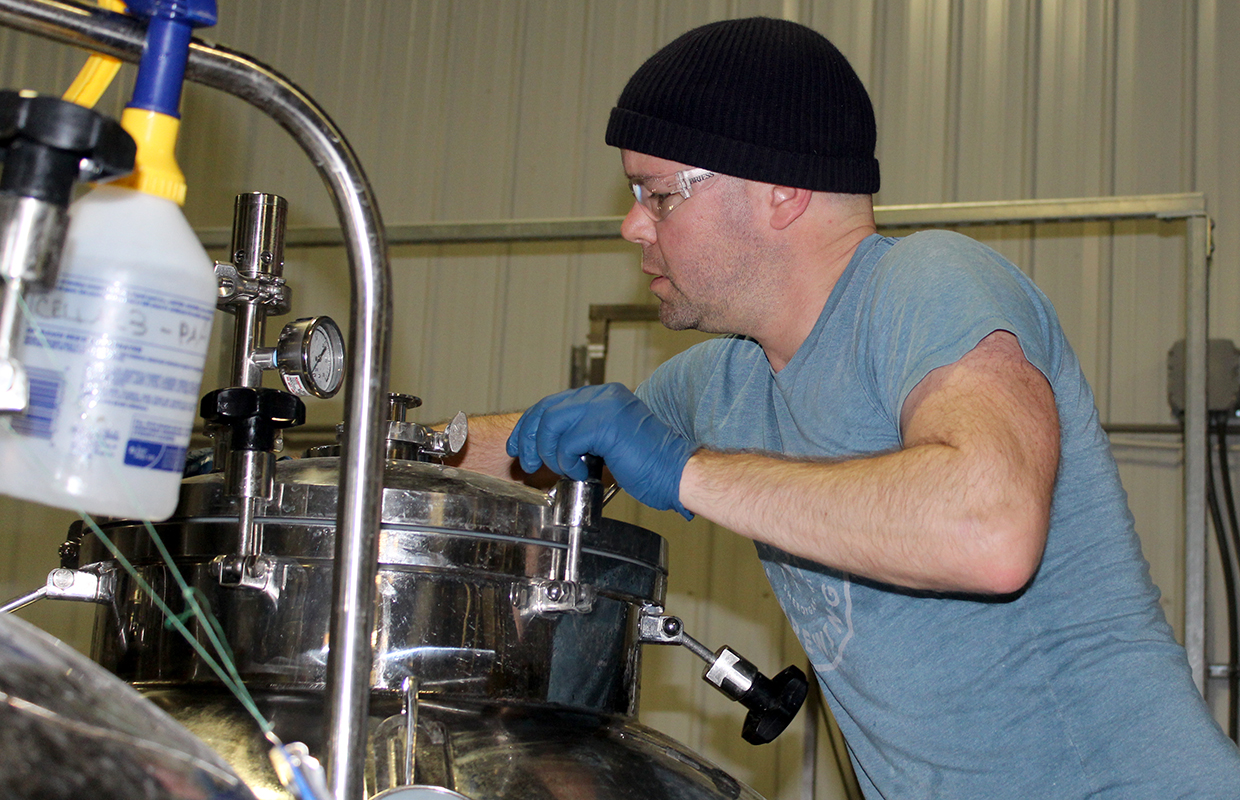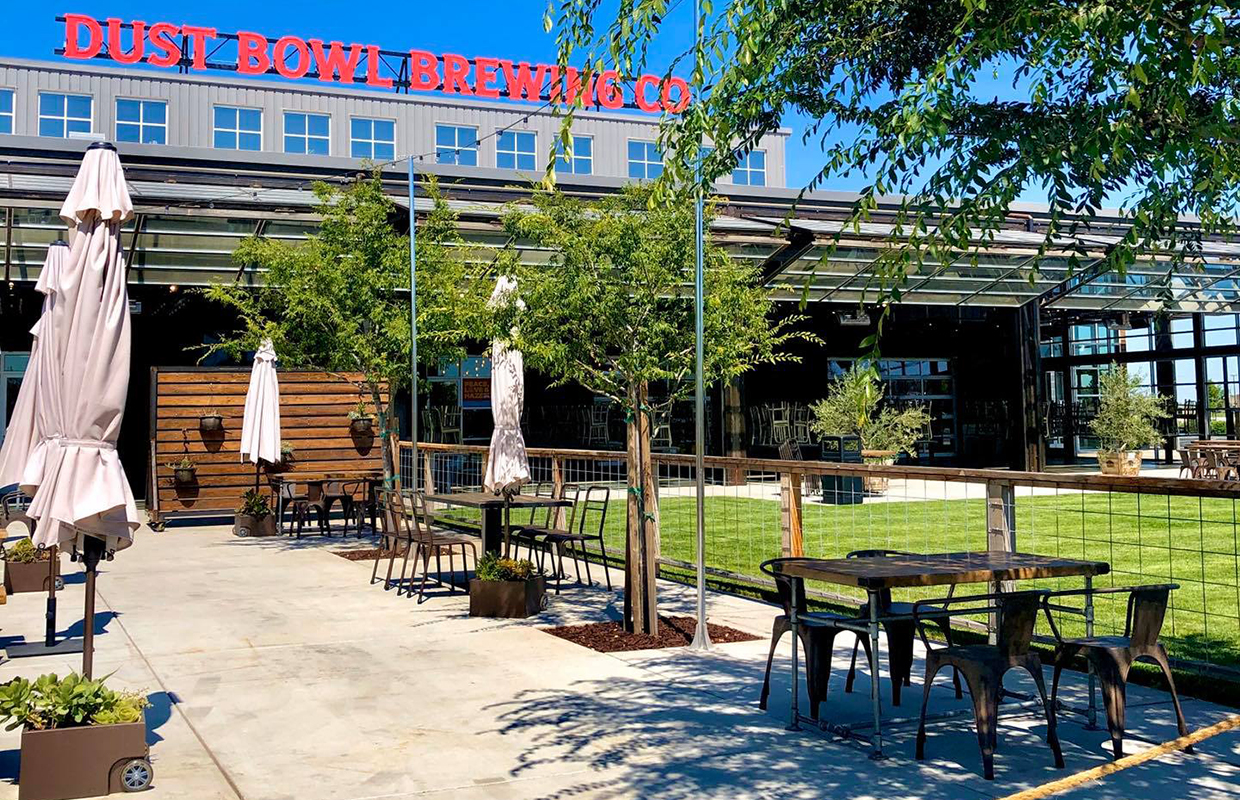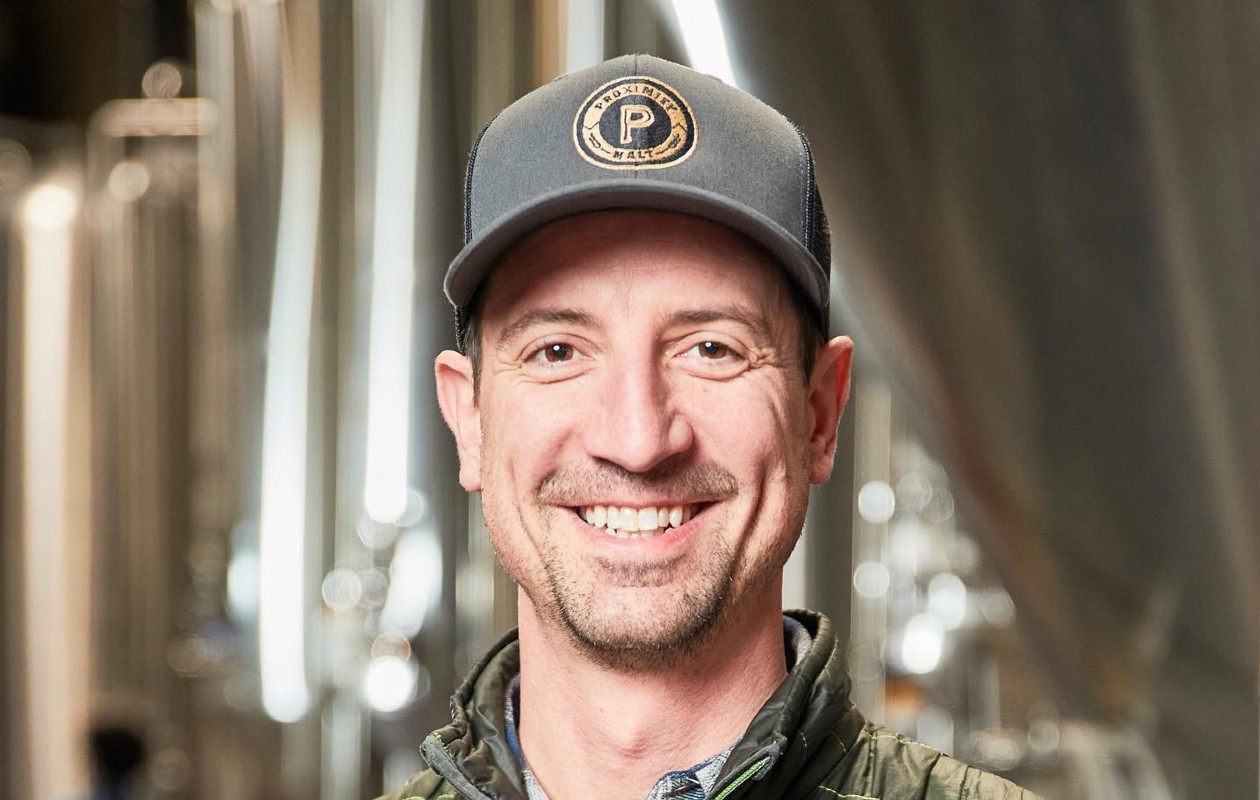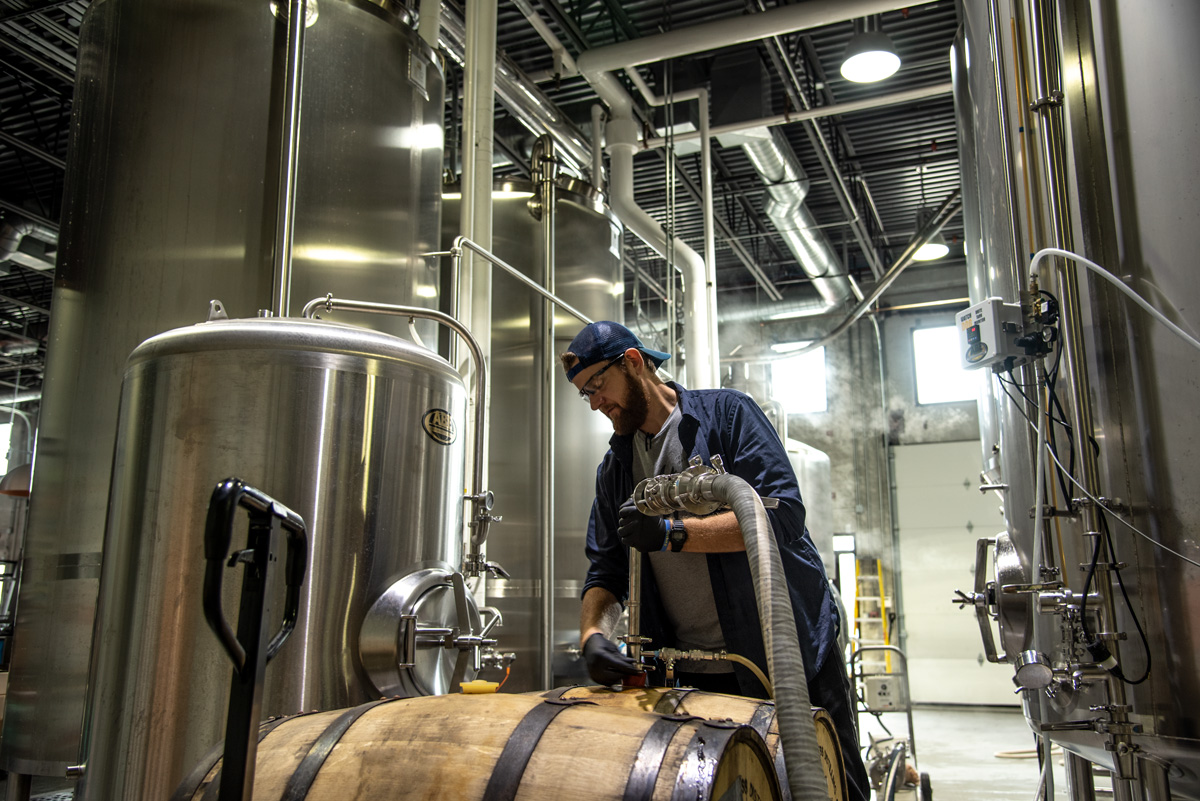
Before 3 Sheeps moved into its newest production space, there were only seven people that worked at the Sheboygan, Wisconsin brewery, producing about 5,000 barrels a year.
“We’re up to 38 people,” said co-founder Grant Pauly. “We’ve had a lot of growth in the last five or six years and it’s been cool to see everyone still be excited and I still try to keep that small, family-esque feel to it.
“We’re here to support each other, work with each other and have fun. It’s long days, just like any other job, but we do get to be in beer. It does change it a little bit.”
Located about 45 miles north of Milwaukee, 3 Sheeps has steadily grown over the past decade as a production brewery for the state while being a part of a smaller community. As the company has grown, the challenge of bringing in quality employees to help build the brand is vital.
Pauly, who spoke with Brewer during the cover story for the March/April issue, explained that although he started the brand small and coming from a family-run background when he does hire in key positions it’s to find the expert for that to take one more hat off his head.
“They should be the expert, and be way better at it than I am,” he said. “That’s the whole goal — bringing people on and elevating them.
“We have a lot of great people now here that do that.”
That includes Joe Carani, the company’s Operations Director who came from Dorchester Brewing in June of 2021.
“That was our first big management-side addition,” Paul said. “Bobby Sullivan is our Director of Sales. He came from Goose Island/High End from pre and post-merger at AB. We have really good people here that we can lean on.”
Getting people to move to Sheboygan has always been a little tricky, Pauly admitted.
“Most of our staff here is from Sheboygan,” he said. “We train them in the art of beer or cellar work or packaging. It is a little trickier endeavor. I think, now that we’re getting a little larger we are starting to bring people in who want to move to Sheboygan to work with 3 Sheeps, which is great.”
He noted that it brings different experiences and talents that they may not have there.
READ MORE: Keys to Early Hires
“But it’s got to be a partnership,” he said. “We can’t hype up or oversell ourselves too much. Is it gonna work out for either of us? We kind of promote our goal that we are making beer together. And I hope we do so in a fun and aggressive way.
“I think that’s what people get excited about, we are a company with a lot of potential. And they get to really leave their impact and mark on it. I think everyone here feels that way. Recipe designs, ideas, and things like that. People are always throwing out stuff they want to try and it doesn’t matter what department you are in, we really try to engage those small teams.”
It’s helped alter Pauly’s day-to-day of managing the brewery compared to more than 10 years ago when they launched the brand in a former sock-making factory.
“I’m a glorified desk jockey,” he said with a smile. “I still try to get out here and work with everyone. The biggest impact I think I can have right now is working on new recipes and design, working with our sales team, and trying to work with our crews to make sure that they have everything they need to do everything they can way better than I would do it if I was doing that role myself.”
That means a lot of desk time and also road time as he tries to get out with the sales team and go to the right spots, with the company’s distributors.
“[It’s] the things that I couldn’t do as much when I was on the brewhouse or helping in packaging,” he said.
As 3 Sheeps grows, they get way more complicated, he said.
“It’s almost like some days, we’re just making systems for our systems to function,” Pauly said. “We have to because it’s not all just in one person’s head. We’re trying to do this many releases with this many different labels and this many different recipes, make sure your ingredients are here.
“There’s just a lot of layers that we need to make sure we’re doing well. We’re still developing all those layers, elevating individuals to different management roles. We’re really creating a structure that is hopefully efficient.”
The best way to measure if things are being run well?
“We want to be bored every day,” Pauly said. “That means there’s no fires to put out, we did everything we’re supposed to doing, just going and smooth sailing.
“Days we don’t, then we talk about how do we make sure we’re bored tomorrow. What do we need to change? Why was this an incident?”




Be the first to comment